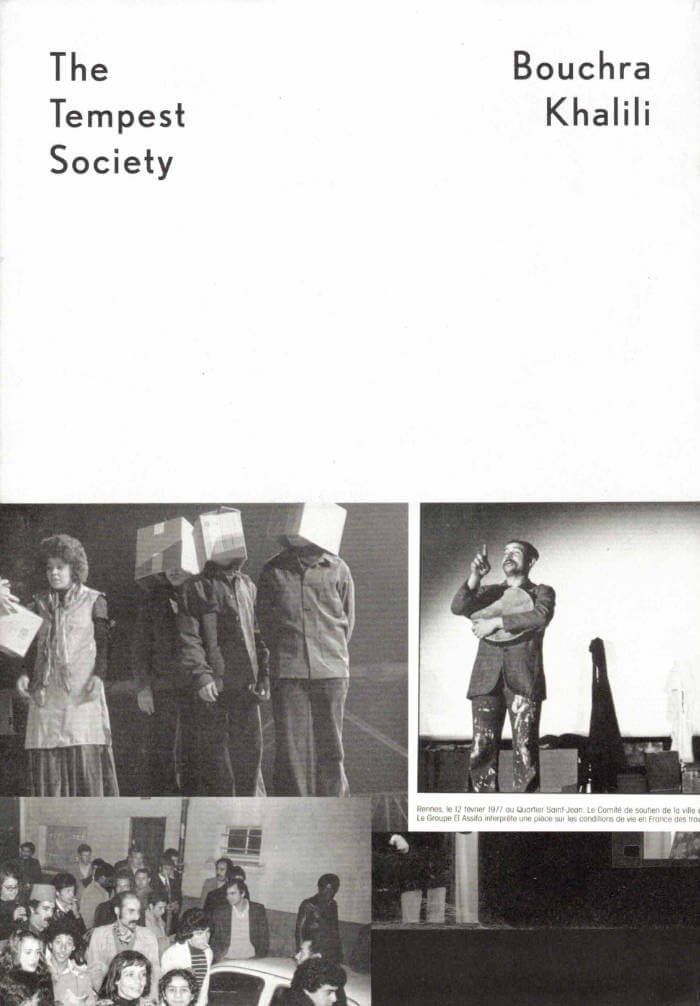Omar Berrada
Omar Berrada

Another Room to Live In: 15 Contemporary Arab Poets
Another Room to Live In is an archive of encounter: a multilingual conversation between fifteen poet-translators, connected through friendship, correspondence, and cross-diasporic gatherings. With work in English, Arabic, and French, the collection moves beyond both language and nation-state, investing instead in transcontinental dreamspaces. Here, translation practices collaboratively transform the poems and reflect the poets’ own experiences of “living” in multiple languages. Complicating any flat conception of identity, the poems presented here seek to revisit and challenge foundational narratives, to rework mythologies, and to do all this through a cross-generational process of translation as poetic communion.
Contributors include: Etel Adnan, Hoda Adra, Sinan Antoon, Mirene Arsanios, Omar Berrada, Sara Elkamel, Safaa Fathy, Soukaina Habiballah, Marilyn Hacker, Golan Haji, Kadhim Jihad Hassan, Pierre Joris, Mona Kareem, Souad Labbize, Rachida Madani, Alisha Mascarenhas, Iman Mersal, Aya Nabih, Sarah Riggs, Yasmine Seale, Cole Swensen, Habib Tengour, and Sam Wilder.
And more

The Tempest Society
Gathering together interviews, essays, rare archival material and translations, The Tempest Society revisits and resuscitates the forgotten heritage of a politicised theatre group – ‘Al Assifa’ – that was born out of the struggles of the Mouvement des travailleurs arabes (MTA), Palestine, anti-colonialism, and workers’ and immigrant labour rights. Contributors explore the legacy of the group – placing this history in the context of the European economic crisis and its effect on Greece, contemporary migration and the conditions of immigrant workers and refugees. Conversations with the artist, and participants and collaborators in her film, consider the potential for politicised art to move between the street and the factory in cultural production today.
Following The Tempest Society (2017), the original video installation commissioned for documenta 14, which took Athens as a site to reflect on radical equality, democracy and theatre as a civic space, the book brings to light the specific history, the archive, and the ongoing resonance of the agit-prop theatre group ‘Al-Assifa’ in the context of urgent economic, political and humanitarian upheaval.
With contributions from Abdellali Hajjat, Hendrik Folkerts, Pothiti Hantzaroula, and interviews with Philippe Tancelin, surviving member of Al Assifa, Bouchra Khalili, Omar Berrada, and Alexandre Kauffmann, and Isavella Alopoudi, Elias Kiama Tzogonas, and Giannis Sotiriou, the performers in The Tempest Society.
Bouchra Khalili is a Moroccan-French visual artist. Raised between Morocco and France, she studied Film at Sorbonne Nouvelle and Fine Arts at École Nationale Supérieure d’Arts de Paris-Cergy. Recent exhibitions include solo shows at MFA, Boston, Jeu de Paume, Paris and Sessession, Vienna. In 2018 she has been shortlisted for both the Guggenheim’s Hugo Boss Prize and the Artes Mundi Prize. She currently lives in Berlin.

Meriem Bennani: Life on the Caps
Meriem Bennani's Life on the CAPS is the final chapter in her film trilogy of the same name. Set in a supernatural, dystopian future surrounding a fictional island in the middle of the Atlantic Ocean, it is rooted in Bennani’s research and reflections on the histories of island societies, biotechnology, and vernacular music. Layering live-action footage and computer-generated animation, Bennani intuitively adapts editing techniques that evoke documentary film, science fiction, phone footage, music videos, and reality TV. Her one-person exhibition at the Renaissance Society marked the debut of this personal, electric yet melancholic consideration of what it is to live in a state of limbo, and this accompanying book captures the film through a combination of still images and selections from a transcript of the film.
This volume includes essays by Emily LaBarge and Elvia Wilk and transcripts of conversations between Meriem Bennani and: Omar Berrada; Fatima Al Quadiri, Negar Azimi, and Tiffany Malakooti; Amal Benzekri; and Aziz Bouyabrine.

Togetherward
A volume assembling new and existing documents that revisit, mix and remix moments in the work of artist Christian Nyampeta.
The volume is composed of affections, alliances, appearances, material, and memories that exceed singular authorship, in the form of dedications, documents, elegies, film stills, footnotes, photographs, poetry, presences, and translations. Together they draw a biography of research: the journeys of engaging with art learning and making in, with, and against the worlds of today.
This stream of existing documents is sequenced alongside new contributions by Omar Berrada, Binna Choi, Belinda Kazeem-Kaminski, Natacha Nsabimana, and Isaïe Nzeyimana.
The publication emerges from a close collaboration with GfZK (Galerie für Zeitgenössische Kunst, Leipzig) over the last three years. During this time, two projects were held at GfZK: A Flower Garden of All Kinds of Loveliness without Sorrow, 2018–2019, and Lovers in a Dangerous Spacetime, 2021.
Literature, history, theology and philosophy, as well as insights from experiences and encounters in practice between contemporary art and design percolated into the two exhibitions; public programs; and an ongoing scriptorium, in which the artistic works staged gatherings of artists, theorists and mythologists from Rwanda and further afield who would otherwise never meet.
Titled Togetherward, a word invented by philosopher and artist Denise Ferreira da Silva to describe the rhythm of Nyampeta's method, the volume preludes a series of publications in images, writing, sound, film, and musical recordings that revisit the layers and sediments of the global events of the previous decade—all driven by the burning question of how to live together.
Edited by Vera Lauf and Christian Nyampeta.